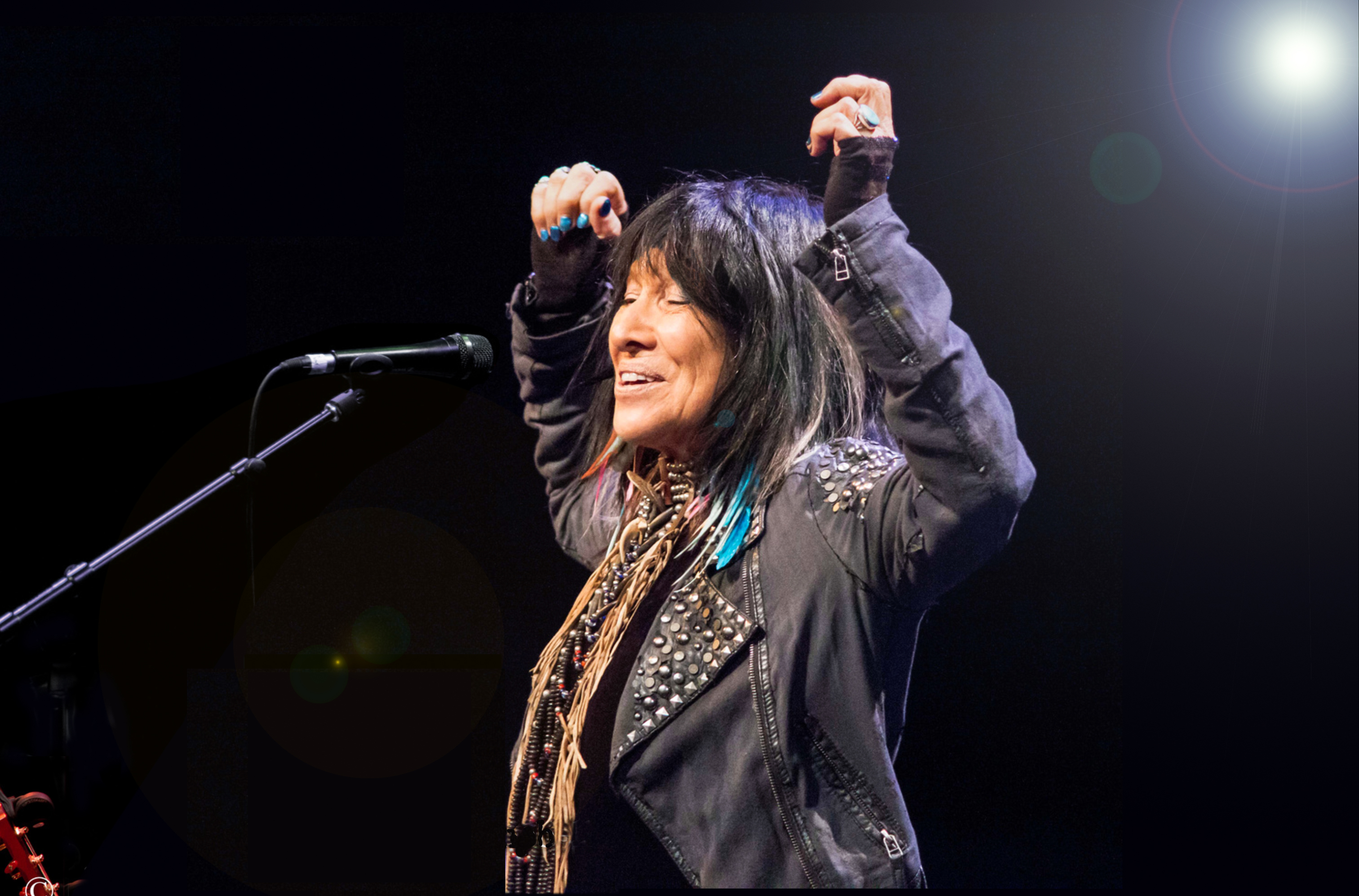
- Details
- By Levi Rickert
Legendary singer and songwriter Buffy Sainte-Marie, 82, is known as the first Indigenous person to win an Oscar. Now her Indigenous ancestry is being questioned.
Getting out in front of the CBC newsmagazine The Fifth Estate that is expected to air a documentary on Friday that calls into question whether or not she is an Indigenous individual, Sainte Marie on Thursday issued a statement that explains the “truth” as she knows it.
 Make A Donation Here
Make A Donation Here
While the CBC documentary reportedly does not name her directly, Sainte-Marie says she was interviewed last month. In the interview she was asked about her Indigenous ancestry and to discuss her childhood sexual assault.
“It is with great sadness, and a heavy heart, that I am forced to respond to deeply hurtful allegations that I expect will be reported in the media soon,” Sainte-Marie wrote in a personal statement.
According to her biography, Sainte-Marie was born on a Piapot Cree reserve in 1941 in Saskatchewan, Canada. She reportedly was one of tens of thousands of Native children taken from their homes and placed with white families, which was part of the Canadian government’s policy called the Sixties Scoop.
She was adopted by a white family in New England where she was raised.
In her statement released Thursday, Sainte-Marie writes:
“What I know about my Indigenous ancestry I learned from my growing up mother, who was part Mi’kmaq, and my own research later in life. My mother told me many things, including that I was adopted and that I was Native, but there was no documentation as was common for Indigenous children born in the 1940s.”
She continues:
"This is my truth. And while there are many things I do not know; I have been proud to honestly share my story throughout my life.
Painfully, the CBC has also forced me to relive and defend my experience as a survivor of sexual abuse which I endured at the hands of my brother, as well as another family member — whom I have never publicly named.
I could never forget these violations. It is something I have lived with all my life. Speaking about my experience is difficult, and although I have shared privately, I have rarely done so publicly. I’ve spoken up because I know others cannot, and to have this questioned and sensationalized by Canada’s public broadcaster is appalling."
To conclude, Sainte-Marie writes:
"I may not know where I was born, but I know who I am."
Descendants of Chief Piapot defended Sainte-Maire in a statement published by The Globe and Mail, calling her “a beloved member of the Piapot family and community.”
They wrote:
"We spent our entire lives together with Buffy as a family, decades together, and we will continue to love and support one another. She has been committed to our family and community and has worked tirelessly to inspire, support, uplift our family, and share our community knowledge and ways and those of other Indigenous Peoples all over the world.
We grew up knowing that Buffy and our grandparents [Emile and Clara Starblanket Piapot] adopted each other and how deeply committed and loving they were to one another. We heard from an older family about how my grandmother cried when she had to leave after an extended family visit to our homelands or after the powwow.
Buffy is our family. We chose her and she chose us. We claim her as a member of our family and all of our family members are from the Piapot First Nation. To us, that holds far more weight than any paper documentation or colonial record keeping ever could."
Sainte-Marie released her first album, It’s May Way!, in 1964.
Sainte-Marie became an activist during the Red Power movement, which gave voice to Native American concerns and issues. Her artistry, humanitarian efforts, and Indigenous leadership have made a positive impact for decades.
Through the decades, Sainte-Marie has garnered numerous awards, including an Oscar and a Golden Globe Award in 1983 for co-writing the hit song Up to Where We Belong. In 2015, she won the Polaris Music Prize for Power in the Blood.
In early August, she announced her retirement from touring.
More Stories Like This
Zuni Youth Enrichment Project Takes Top Emerging Artist Apprentices to Phoenix for Artistic Exploration and Cultural ImmersionFrom Dishwasher to Award-Winning Chef: Laguna Pueblo's Josh Aragon Serves Up Albuquerque's Best Green Chile Stew
Rob Reiner's Final Work as Producer Appears to Address MMIP Crisis
Vision Maker Media Honors MacDonald Siblings With 2025 Frank Blythe Award
First Tribally Owned Gallery in Tulsa Debuts ‘Mvskokvlke: Road of Strength’
Help us defend tribal sovereignty.
At Native News Online, our mission is rooted in telling the stories that strengthen sovereignty and uplift Indigenous voices — not just at year’s end, but every single day.
Because of your generosity last year, we were able to keep our reporters on the ground in tribal communities, at national gatherings and in the halls of Congress — covering the issues that matter most to Indian Country: sovereignty, culture, education, health and economic opportunity.
That support sustained us through a tough year in 2025. Now, as we look to the year ahead, we need your help right now to ensure warrior journalism remains strong — reporting that defends tribal sovereignty, amplifies Native truth, and holds power accountable.
 The stakes couldn't be higher. Your support keeps Native voices heard, Native stories told and Native sovereignty defended.
The stakes couldn't be higher. Your support keeps Native voices heard, Native stories told and Native sovereignty defended.
Stand with Warrior Journalism today.
Levi Rickert (Potawatomi), Editor & Publisher

